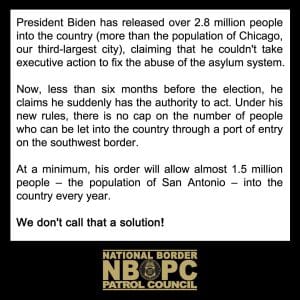Do you have to work with an OWCP or CBP Nurse, if you are injured on the job and have an OWCP claim?
Recent actions by CBP nurses, in Injured Employees DOL OWCP cases, have come into question.
Many injured employees may find a contracted nursing service heavily involved in their workers’ compensation claim. Injured workers often have questions about the scope and roles of the contracted nurses. Below you will find a description and discussion of the two types of nurses that may be assigned to a claim, OWCP contracted nurses, and employing agency contracted nurses. Each has their own unique role in the return to work effort.
OWCP Contract Nurses
OWCP utilizes contracted nursing services in order to facilitate an injured worker’s claim. They are generally assigned for 120 days, but may be extended for longer periods if warranted. The nurses can fulfill different roles including:
- Making assessments of the initial extent of the injury;
- Coordinating treatment necessary for recovery;
- Communicating return-to-work expectations;
- Attending the claimant’s medical appointments to facilitate communication about return to work and ease any authorization difficulties the claimant may be encountering;
- Authorize minor non-invasive testing and procedures that facilitate recovery or assessment (e.g. MRI)
- Identifying possible barriers to the claimant’s return to work and then developing a plan of action with the CE to resolve the identified barriers;
- Making recommendations for vocational rehabilitation; and
- Acting as a liaison between the Claims Examiner, claimant, employing agency, and medical providers.
OWCP nurses may be identified by the titles of “COP Nurse“, “Field Nurse“, or “Nurse Case Manager”. The use of a contracted nursing by OWCP service is permitted by 20 CFR 10.310(a). OWCP has published a Field Nurse Handbook (FNHB) describing the roles and responsibilities of the assigned contract nurses. OWCP has separate guidelines for COP Nurses (during the initial Continuation of Pay period) and Field Nurses.
These nurses may attend an injured worker’s medical appointments, speak directly to the treating physician and agency (in-person or telephonically), as well as schedule additional appointments and testing to facilitate a FECA claim. Examples of the types of contacts and interventions are:
- Attend all key medical appointments where it is anticipated that a significant change in medical/case status may occur (e.g. issuance of a work release, documentation of work tolerance limitations, changes in medical status or treatment plan, determination of maximum medical improvement (MMI), discharge from care, etc.);
- Discuss treatment options, to include a referral to a specialist or other health care service provider, as necessary;
- Assist the IW with scheduling medical appointments;
- Obtain relevant medical documentation and treatment notes for submission to OWCP;
- Obtain updated treatment plans from the treating physician along with the anticipated work release and/or MMI date;
- Provide the treating physician with a description of the physical requirements of the IW’s date of injury job and request a work release to return to the full duties of the job, if applicable, or advise the IW and the treating physician of the availability of light duty work. If the IW is currently working in a light duty assignment, the physical requirements of the light duty assignment should also be provided to the treating physician;
- Provide the treating physician with relevant forms as needed (e.g. OWCP-5 or CA-20), which can be found on the DFEC site;
- Assist in the authorization process when medical services are requested by the medical provider(s);
- Assist the medical provider(s) in understanding issues related to the release of medical information and authorizations, for example, HIPPA vs. the Privacy Act; and
- Conduct telephonic follow–up to obtain routine medical progress updates.
If employees object to or refuse the intervention strategies of the OWCP contracted nurse, they may face sanctions, including termination of compensation benefits. Injured employees are required
Agency Contract Nurses/CBP Nurses
Several employing agencies have developed their own nurse intervention programs. Whereas the concept of early intervention is in keeping with current case management techniques, the activities of these employing agency nurse programs should be coordinated with the OWCP adjudicatory and case management activities.
OWCP has published specific guidelines established for the employing agency contract or employed nurses and employing agency nursing programs including:
- The injured worker’s participation in an employing agency nurse intervention program is voluntary;
- An employing agency nurse intervention program is limited in its scope and authority, and has no jurisdiction over issues under the purview of OWCP;
- OWCP Field Nurse intervention activities/actions supersede the employing agency actions and the employing agency nurse should suspend any independent actions during the course of OWCP nurse intervention; and
- OWCP officially recognizes only one employing agency point of contact responsible for coordinating compensation and return to work efforts (e.g. the employing agency Injury Compensation Specialist or employing agency duty station supervisor).
As noted above, the OWCP contracted Field Nurse should only be communicating directly with the identified employing agency point of contact, generally the Injury Compensation Specialist (ICS). The employing agency nurse is not recognized as a point of contact for case-related communications, however, the employing agency nurse can act as a resource for the agency during return to work conferences. The employing agency nurse may assist the employing agency and Field Nurse with issues related specifically to the return to work effort and identification of light duty work (as well as identification of any barriers an injured worker may encounter upon return to work, such as the need for ergonomic equipment or transportation). The Field Nurse may recommend to the employing agency point of contact that the employing agency contract nurse be made available to participate in return to work discussions and work site evaluations; however, such return to work discussions and work site evaluations should not be delayed in order to accommodate the employing agency nurse’s schedule.
Any employing agency contract nurse is prohibited from attending medical appointments, participating in treatment (including the scheduling of medical appointments, assessments, and therapies). Similarly, an employing agency contract nurse is prohibited from contacting the injured workers’ medical provider(s) in person or via telephone on behalf of the employee or agency. An employing agency contract nurse may only contact an injured workers’ medical provider in writing, and a copy of any written communication must also be provided to OWCP and the injured worker at the time it is sent to the medical provider.
What To Do If Contacted By A Nurse
When a contracted nurse is assigned, it is recommended that any injured worker or representative take the following steps to ensure they are fully aware of their rights and responsibilities:
- Ascertain whether or not the contracted nurse was assigned by OWCP. This can be done by a simple inquiry to the Claims Examiner or contracted nurse. Be aware that in some instances, employing agency contracted nurses have misrepresented themselves as being assigned by OWCP.
- Inquire as to the role and steps that the contract nurse will take in order to facilitate the return to work and medical treatment.
- Inquire as to the duration of the contracted nurse assignment. The assignment of a contracted nurse by OWCP is one of the best ways to improve timely communication between medical providers, injured workers, and the Claims Examiner. They are an invaluable resource for any injured worker and should be treated as such.
The bottom line is that it’s your injury and you are responsible to get the information necessary to DOL, OWCP not the agencies. Be proactive in your OWCP case and this will prevent many of the issues that arise and prevents delays in benefits, services and pay.
If you have any questions regarding the assignment of a contracted nurse to your workers’ compensation claim, please contact Jonathan Perkins. In your email, please provide:
- OWCP case number;
- Date of injury;
- Date of birth; and
- A brief description of the contracted nurse intervention or issue


